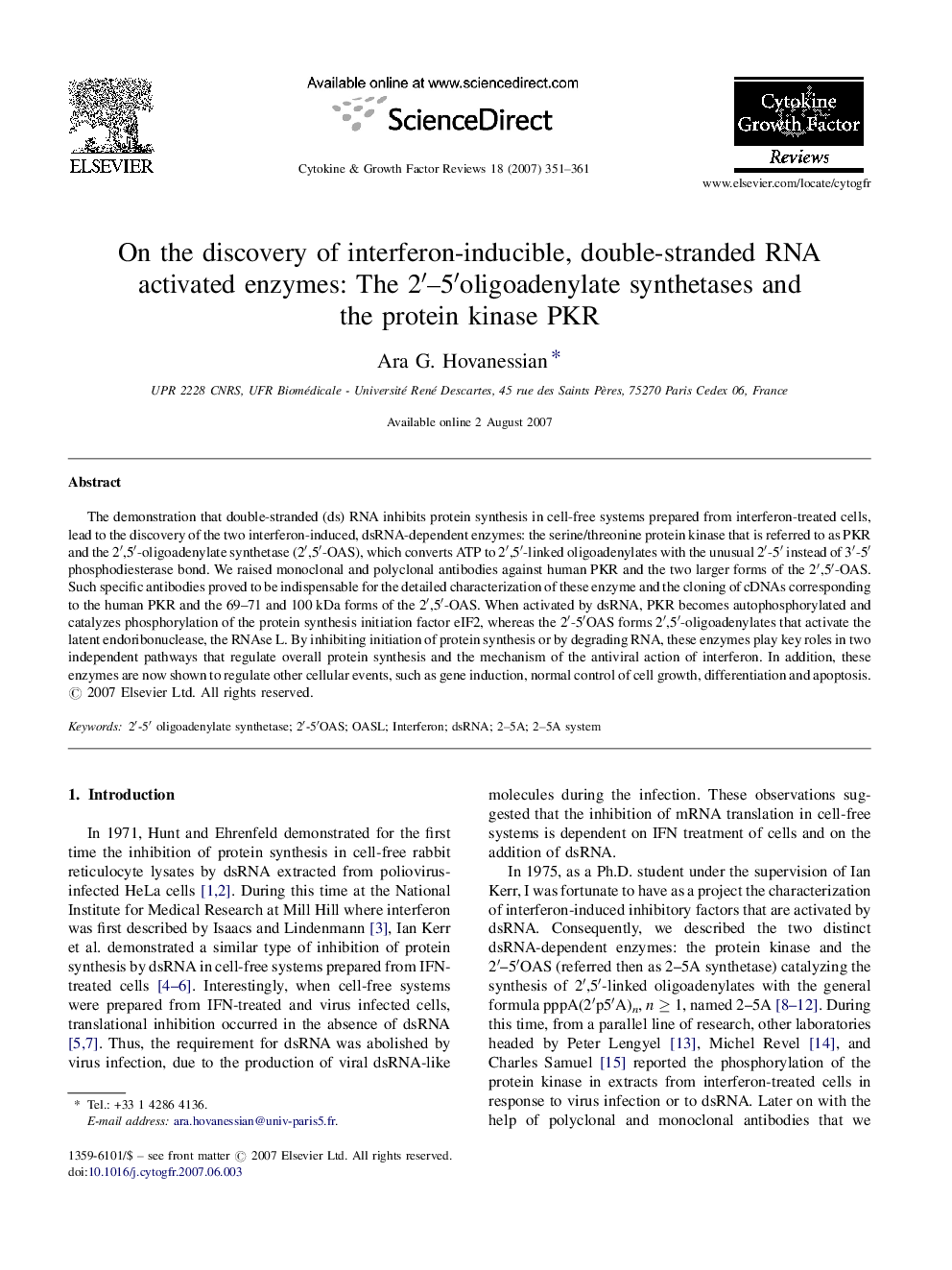| Article ID | Journal | Published Year | Pages | File Type |
|---|---|---|---|---|
| 2170942 | Cytokine & Growth Factor Reviews | 2007 | 11 Pages |
The demonstration that double-stranded (ds) RNA inhibits protein synthesis in cell-free systems prepared from interferon-treated cells, lead to the discovery of the two interferon-induced, dsRNA-dependent enzymes: the serine/threonine protein kinase that is referred to as PKR and the 2′,5′-oligoadenylate synthetase (2′,5′-OAS), which converts ATP to 2′,5′-linked oligoadenylates with the unusual 2′-5′ instead of 3′-5′ phosphodiesterase bond. We raised monoclonal and polyclonal antibodies against human PKR and the two larger forms of the 2′,5′-OAS. Such specific antibodies proved to be indispensable for the detailed characterization of these enzyme and the cloning of cDNAs corresponding to the human PKR and the 69–71 and 100 kDa forms of the 2′,5′-OAS. When activated by dsRNA, PKR becomes autophosphorylated and catalyzes phosphorylation of the protein synthesis initiation factor eIF2, whereas the 2′-5′OAS forms 2′,5′-oligoadenylates that activate the latent endoribonuclease, the RNAse L. By inhibiting initiation of protein synthesis or by degrading RNA, these enzymes play key roles in two independent pathways that regulate overall protein synthesis and the mechanism of the antiviral action of interferon. In addition, these enzymes are now shown to regulate other cellular events, such as gene induction, normal control of cell growth, differentiation and apoptosis.
